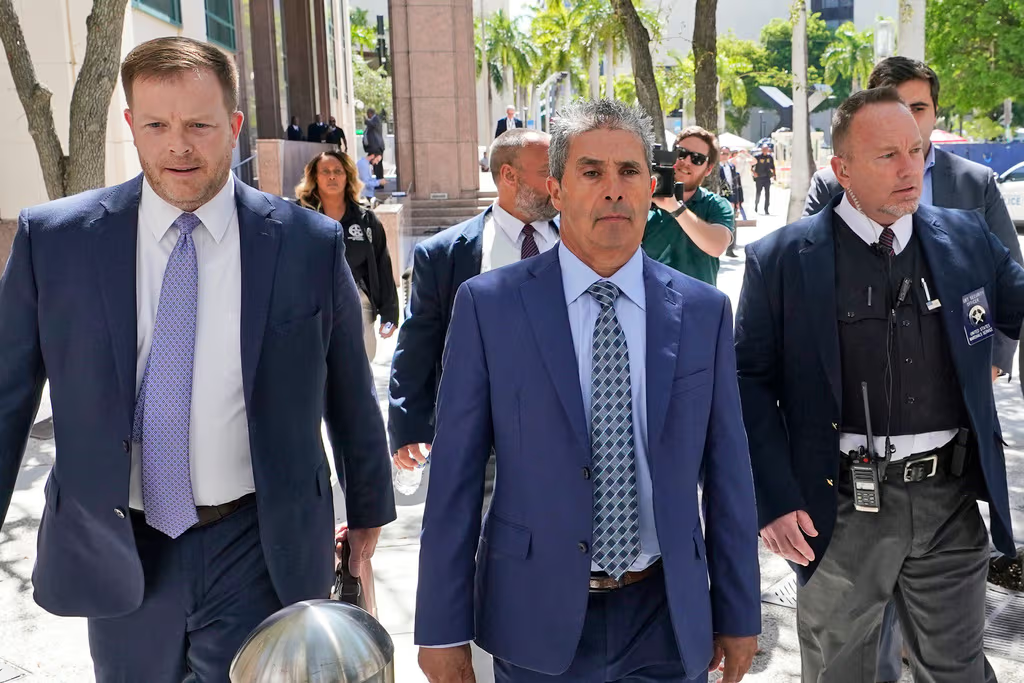How Jack Smith Turned One of Trump’s Employees Against the Former President
A new filing offers a tangled tale of self interest and conflicting loyalties that could end unhappily for the 45th president, who has now been ‘implicated’ in obstruction.

The disclosure from Special Counsel Jack Smith that one of President Trump’s Mar-a-Lago employees testified against his erstwhile boss to avoid perjury charges underscores the prosecutorial pressure being brought to bear in the effort to convict the former president.
That disclosure was made in a filing from Mr. Smith’s office to Judge Aileen Cannon, who is presiding over the documents case. The reply brief defends the special counsel’s use of a District of Columbia grand jury despite charges being filed in Florida. Judge Cannon had asked both sides to weigh in on that question.
At the center of the filing is “Trump Employee 4,” identified by CNN as Yuscil Taveras, an information technology worker at Mar-a-Lago. Mr. Taveras was represented by the same lawyer, Stanley Woodward, who is representing Mr. Trump’s valet, Waltine Nauta. Mr. Woodward is being paid from the coffers of one of Mr. Trump’s PACs that is earmarked for legal defense.
Mr. Smith has argued that Mr. Woodward’s representations in the case amount to a tangled web of conflicted interests that have now come to a head in Mr. Taveras’s troubled tale. In the special counsel’s telling, the technology worker was pressured by another defendant, Carlos De Oliveira, to delete security footage of a storage room at Mar-a-Lago containing classified documents.
That request allegedly came after the District of Columbia grand jury had already issued a subpoena for the footage. Mr. Smith alleges that when Mr. Taveras testified before the grand jury, he “repeatedly denied or claimed not to recall any contacts or conversations about the security footage at Mar-a-Lago.” Mr. De Oliveira did the same.
Mr. Smith maintains that “the Government’s evidence” indicates that both of those testimonies were false, meaning that Messrs. De Oliveira and Taveras perjured themselves. These perjuries in turn incriminated Messrs. Trump and Nauta as participants in a conspiracy of obstruction. They, along with Mr. De Oliveira, have all been charged on that score, along with others.
For the special counsel, this sequence “crystalized” the conflict of interest that taints Mr. Woodward’s work. Advising Mr. Taveras to “correct his sworn testimony” — meaning, retract it — “would result in testimony incriminating Mr. Woodward’s other client, Nauta. Permitting Mr. Taveras’s “false testimony to stand uncorrected,” though, would leave him “exposed to criminal charges for perjury.”
Mr. Woodward, though, claimed that he advised Mr. Taveras that if he wished to “become a cooperating Government witness, he has already been advised that he may do so at any time.” He also told his client that he could “go to trial with the presumption of innocence and fight the charges against him.”
It appears, though, that Mr. Taveras was unpersuaded. In Mr. Smith’s telling, he informed a district court judge in the District of Columbia that “he no longer wished to be represented by Mr. Woodward.” Immediately after receiving new counsel, Mr. Taveras “retracted his prior false testimony and provided information that implicated” Messrs. Nauta, De Oliveira, and Trump.
Mr. Smith writes that he anticipates calling Mr. Taveras “as a trial witness and expects that he will testify to conduct alleged in the superseding indictment regarding efforts to delete security footage,” notwithstanding his “prior inconsistent statements in his grand jury testimony.” The tech specialist has gone from possible perjurer to a linchpin of the documents case and indispensable to the superseding indictment that charged Mr. De Oliveira.
The special counsel argues that “it was appropriate to use the grand jury in the District of Columbia to investigate false statements” made by Messrs. Taveras and De Oliveira because neither was named in the original Florida indictment, and the “venue for charges based upon their false statements in the District of Columbia would lie only in that district.”
Mr. Nauta accuses Mr. Smith of “attempt[ing] to diminish the Court’s authority over the proceedings in this case and to undermine attorney-client relationships,” and has asked Judge Cannon to exclude Mr. Taveras’s testimony from evidence. His boss and fellow defendant, Mr. Trump, likely shares that desire.

